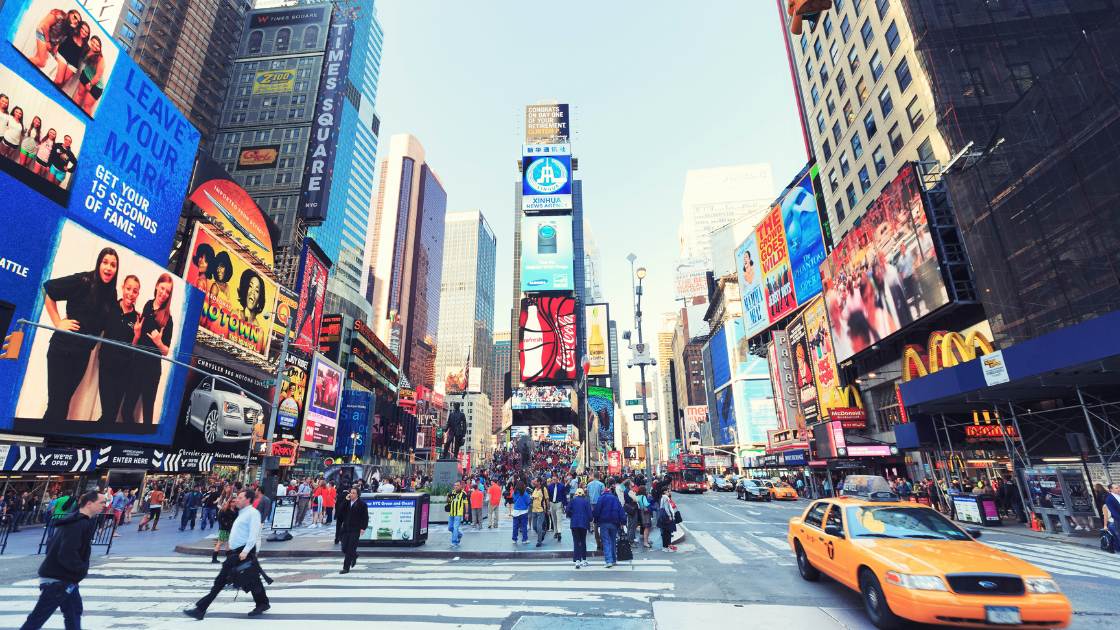If you’re a New Yorker, you’re probably familiar with the sky high rents for even a modest place in the city. It’s the price you pay for living in arguably the world’s most famous (or infamous) metropolis. You get to experience incredible dining, nightlife and an urban vibe like no other.
Even so, rent increases can be very upsetting for any tenant, especially if you are paying a lot to begin with. So, it’s only natural to wonder how much landlords can raise rent in NYC.
In this article, we’ll walk you through all the things you need to know about rent price hikes in New York. We’ll also discuss the legal steps landlords must take before raising the rent price.
If you don’t have time to read through it all (you are a New Yorker after all), here’s a short answer to the question.
Rent controlled apartments in NYC have a 3.25% cap on rent increases for one-year leases and a 5% cap for two-year leases. If your place is not rent controlled, there is no cap, but there are advance notice requirements if the landlord increases the rent by 5% or more.
The information contained in this post is for informational purposes only. It is not legal advice. You should seek the advice of a qualified legal professional before making any decisions relating to the topics covered by this article.
We may earn commissions from products and services that are purchased or recommended through our website as part of our affiliate partnerships. As an Amazon affiliate, we may earn from qualifying purchases.
How Much Can Landlords Increase Rent in New York City?
Some Background on NYC Rents
According to the latest surveys, New York City has the highest rent cost in the US. Trailing behind are San Francisco, Boston, and Miami.
While there are state laws limiting the amount of rent increase landlords can demand from renters, the ability of these laws to protect tenants depends on the type of apartment they rent.
For instance, unregulated apartments aren’t covered by rent-capping regulations. As such, landlords can freely raise the rent as much as they can.
However, if you live in a rent-controlled apartment, you are legally protected from dramatic increases. State laws also regulate rent increases based on apartment improvements. More on all that later.
That said, rent raises rarely exceed 5% of monthly rent in New York City. Your landlord can’t also increase your rent randomly, except during the end of the lease.
Unregulated Apartments
Landlords owning an unregulated apartment may raise their rents freely, as the Housing Stability and Tenant Law of 2019 primarily concerns tenants in stabilized (aka rent controlled) rental units.
However, the updated NYC rent law dictates better notice guidelines for lease renewals or rent increases. Every lessor of a free-market building must abide by these regulations.
For example, if your landlord decides to raise their rent charge, New York state law requires them to provide advance written notice a few months before the raise. We’ll cover specifics on notice requirements below.
Rent-Controlled Apartments
Rent-controlled apartments are dwellings that have regulations governing rental amount and increases. In NYC, they operate under what is called the Maximum Base Rent (MBR) system.
This uses a formula to figure out what the maximum base rent if for a unit based on various factors. Now the actual rent that tenants pay is called the Maximum Collectible Rent (MCR).
This is generally less than the MBR, but the MCR cannot be increased beyond certain regulatory ceiling which are outlined here.
It’s kind of complicated, but the bottom line is that rental charges for these types of units cannot exceed the price dictated by law.
Now here’s where the rubber meets the road.
The NYC Rent Guideline Board issued a guideline for rent increases in regulated buildings in June 2022. Subject to certain conditions, the board mandated a 3.25% cap for one-year lease contracts and a 5% cap for two-year lease agreements.
Now that’s the end of the story. If your landlord makes certain improvements, they may be able to increase the rent more. Let’s turn to that.
Major Capital Improvements (MCI)
Major Capital Improvement is one of the reasons property owners might raise the rent price.
An MCI is an improvement or installation that improves the overall condition of a building that is subject to the rent stabilization or rent control laws. Source.
The law specifies the maximum amount landlords can raise your rent for an MCI to 2% of your current annual rent cost. Before collecting the MCI rent charge, they must also repair any hazardous violations.
Individual Apartment Improvements (IAI)
Aside from MCI, landlords may raise the rent if improvements are made inside a single apartment. This is referred to as Individual Apartment Improvements.
That said, these types of improvements are only possible if you provide written consent as a tenant. The amount of rent increase also depends on the cost of improvements. Source.
Rent Increase Notice in New York
Before any rent increase that exceeds 5%, landlords must follow the required noticing protocol respecting tenant rights. Here are some of the noticing rules according to NYC guidelines:
- Tenants living in the apartment for under a year with less than a 12-month lease contract should receive a 30-day written notice.
- Tenants living in the apartment for more than one year with a one to two-year lease term should receive a 60-day written notice.
- Tenants living in the apartment for more than two years with a two-year lease contract should receive a 90-day written notice.
Final Thoughts
So there you have it – a comprehensive look at how rental price increases operate in NYC and the laws applicable to them. Hope this has been helpful and happy renting!

